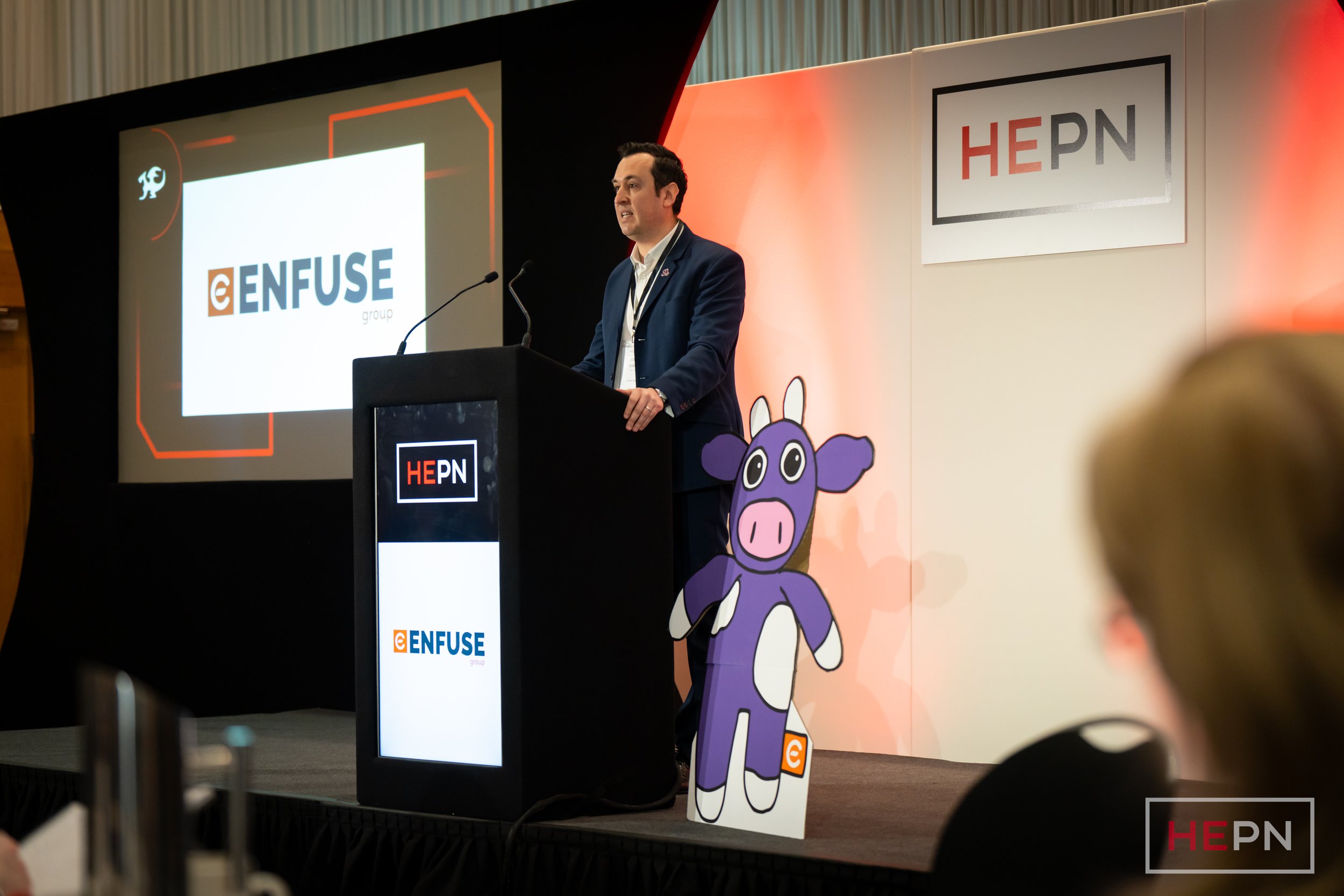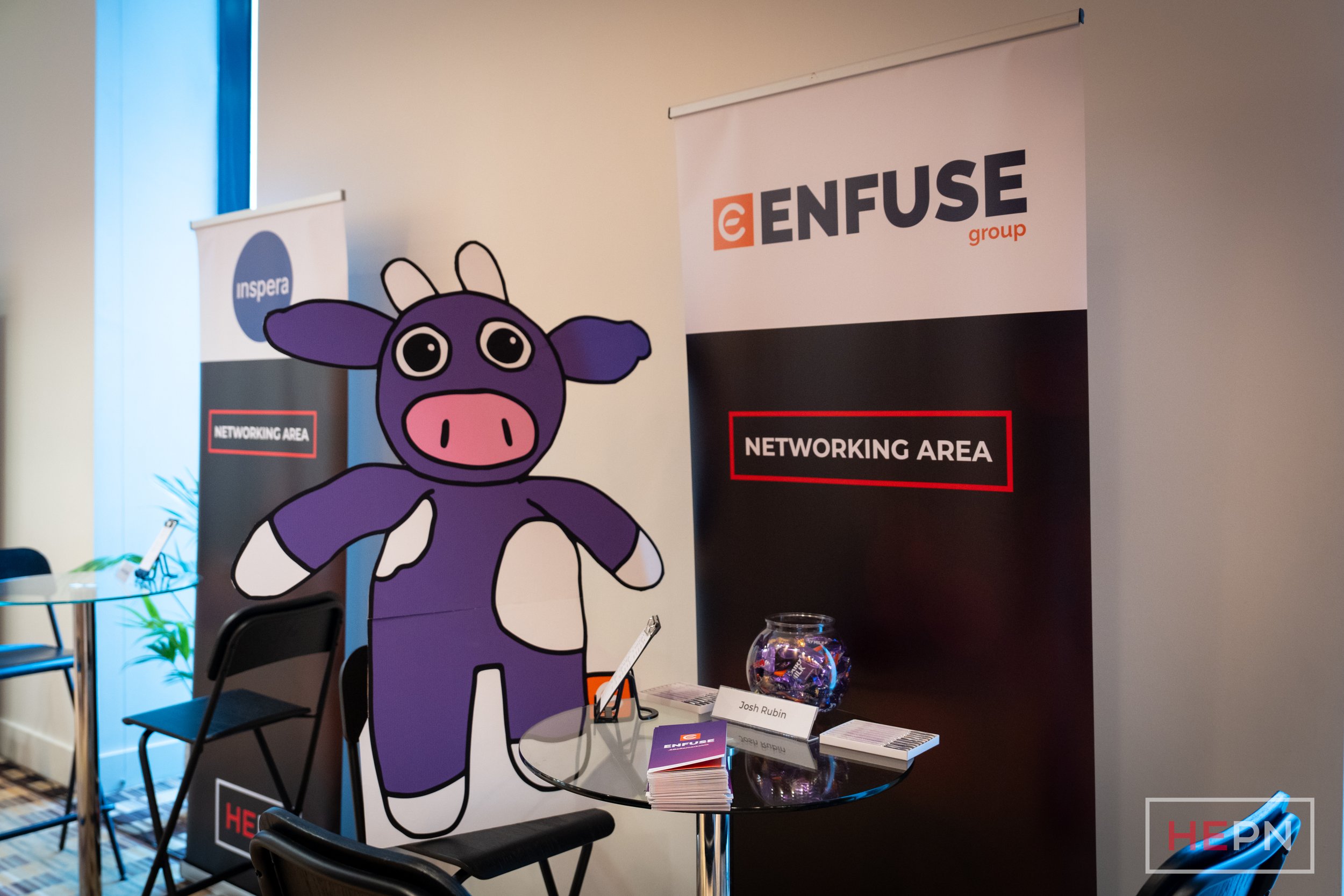Insights from HEPN 2024
Leaders across the education industry gathered in Manchester last week to discuss some of the most pressing challenges and exciting opportunities currently faced by the UK university sector. The conference, attended by nearly 200 university delegates, provided their insights as to the top three areas of greatest interest: 1. Artificial Intelligence, 2. Digital Transformation, and 3. Student Experience. An insightful series of presentations and panel discussions ranged from how universities can demonstrate value for money, through to what the future of technology in the sector looks like. Here are three key takeaways:
1 Gen AI again takes centre stage
In a common theme for conferences over the past year, AI was yet again the key topic of discussion. Adrian Ellison, Chief Information Officer and Associate PVC, University of West London (UWL), astutely remarked that this is the worst version of AI that we will ever encounter, and it is only going to improve from here. Forward-thinking universities, such as UWL with its 'Impact 2028' strategic plan, are seamlessly integrating AI and digital technology into their core strategic plans, recognising these not as distinct strategies but as central to the future of their institution.
Whilst the opportunity for Gen AI is vast, the audience of educational leaders also showed a range of reactions on the Slido to their emotional response to AI, with most prevalent ones being “limited”, “scary”, in addition to “exciting” and “potential”. Plenty of examples from Sora.ai to Cyber Inc. and even Nutella using Gen AI to create 7 million unique labels for their jars were provided to demonstrate the range of use cases AI is being deployed in.
For universities, the increased use of AI also creates many questions and concerns around potential bias, plagiarism, ethics, inaccuracy & misrepresentation, and risk of privacy and IP loss. It will be interesting to see how universities tread the line between risk and reward on this – but one thing is for certain: Gen AI is a force shaping the future academic landscape.
2 Humanizing Transformation: shifting mindsets
All of these tools and technology in the world is meaningless in a people-driven organisation, such as a university, without having the right mindsets and digital skills in place.
Oliver Davy (CDO, University of Derby) talked about “digitally confident” colleagues being key to the future of technology, Adrian Ellison used the same term, and Lee Rose (Assistant Director, Projects CTO, University of Sussex) talked about “humanizing transformation” through the adoption of a modern (digital) mindset. It is clear that everyone is acknowledging the key role in mobilising, training, and instilling a different mindset into people across the organisation in order to drive successful digital transformations.
3 Data is the key to open the AI value lock
All of these grand plans to leverage AI however rest upon universities’ ability to harness the power of their data and have it in an accurate, secure, and useable format. The old adage of ‘garbage in, garbage out’ rings true.
Sarah Lawson (Deputy CIO & CISO at UCL) talked about the other critical side of data; security. Sarah’s talk on ‘Protecting your data in the digital age’ demonstrated just how unconfident audience members were in knowing their data is protected. With the increasing use of AI and other technologies, protecting data means far more now than simply ‘compliance’, as recent cyber attacks on the sector have illustrated. However, this must be done in a way that still creates an enhanced and seamless experience for users.
Those who harness their data and build the digital confidence into their organisation are sure to be the big beneficiaries of this transformative Gen AI capability.
Summary
The conference underscored the transformative potential of AI, the importance of cultivating the right mindset and digital skills, and the central role of data in unlocking the value of AI for universities in the UK.
The compelling closing keynote from Sara Prowse, CEO of University Academy ’92, brought back into focus the core purpose of the sector and how it shapes and supports society and local communities in all manner of ways.
Amid tough economic times for the sector, universities face the key challenge of sustaining relevance. To achieve this, universities must utilise their (often scarce) resources (both financial & human) to prioritise the strategic investments that will deliver the most impactful return on that investment for their colleagues, their current students, future students, and broader community – not only for their needs of today but preparing for their needs of tomorrow.


